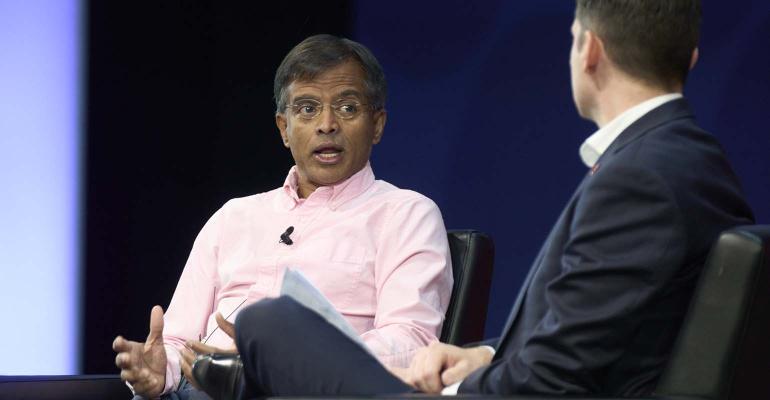Aswath Damodaran, professor of finance at the Stern School of Business at New York University, is an outspoken critic of ESG investment strategies and brought the debate to the Morningstar Investment Conference in Chicago.
Alluding to attacks on ESG investing by some Republican politicians and state legislators, who have pushed state pension funds to abandon the use of environmental, social and governance investment filters, as well as the creation of “anti-ESG” investment vehicles, Damodaran said that the discourse has become counterproductive.
He argued that ESG as a concept may need to be retired entirely by delinking the three core components, with a narrower focus on certain achievable goals, rather than getting sidelined in a bigger theoretical debate around investors’ intentions and outcomes.
“I blame ESG advocates, who could not see this coming.” Damodaran said. “They put the ‘S’ in the middle of ESG. Name one social issue that there’s a consensus on? I hear ESG advocates complaining about a backlash. It’s like pyromaniacs complaining about fires.”
Damodaran said there are core ideas as part of ESG that are good, such as trying to deal with climate change and reducing carbon footprints. The problem is bundling those initiatives with other issues in an “ESG” wrapper.
“We need to take each individually. Pick the issues that matter the most and have disclosure on what matters the most,” he said.
He said direct indexing was a good option for values-oriented investors, where individuals could construct portfolios aligned with what matters most to them.
The larger problem is that countries are trying to address societal problems through an investment strategy rather than the political process.
“We’ve abdicated responsibility as citizens and legislators to CEOs,” he said. “We’ve let companies make decisions that we should be making as a society. The first steps should be regulatory and legal requirements for all companies. The problem with ESG is it's selective. Only public companies that feel the heat respond. We need something that cuts across the board to make a real difference.”
Damodaran continued his critique during a panel discussion with Adam Fleck, director of equity research, ESG, for Morningstar.
“I’d like to see a decision on what ESG is actually measuring,” he said. “In the 14 years that it has been around—it started as extension of U.N. document on climate change to reduce carbon footprints. Then it shifted to saying it created alpha. Then 2020 and 2021 came along and the war in Ukraine. The alpha pitch went away. Fossil fuel stocks started to do well. The focus changed from alpha to risk. And now there’s a shift to materiality. At some point we have to say what ESG is. I’m OK with whatever that stand is. But right now, I’m trying to figure out where it’s going to end up.”
Another issue for Damodaran is that ESG is primarily applied to public companies, not private ones.
“There’s a whole set of companies that are untouched,” he said. “Private companies, or private-equity owners or companies in countries that aren’t pushing ESG. Are we just pushing bad behavior to other places?”
Damodaran also addressed the biggest news of the day: a $70 billion run on deposits at First Republic Bank that has spooked depositors and investors. The stock has shed 95% of its market value since the end of February. It could be the next domino to fall in a string of bank failures that has included Silicon Valley Bank, Signature Bank and Credit Suisse.
“Valuing banks is as close to the dark side as you can get. The value in a bank can melt in a minute,” Damodaran said. “It’s based on trust. With First Republic, the trust is gone. And it has a high percentage of wealthy depositors. Depositors talk to each other. So, I’m not surprised they lost so much today. The question now is survival. A bank cannot survive without deposits. At this stage, is there something that can be done to stall the pain?”
More likely, First Republic will meet the same fate as some of the other troubled banks and be forced into an acquisition arranged by federal regulators.
“My worry is, will investors turn to the next weakest link in the chain?” Damodaran said. “If First Republic is acquired, who will be the next bank targeted?”





